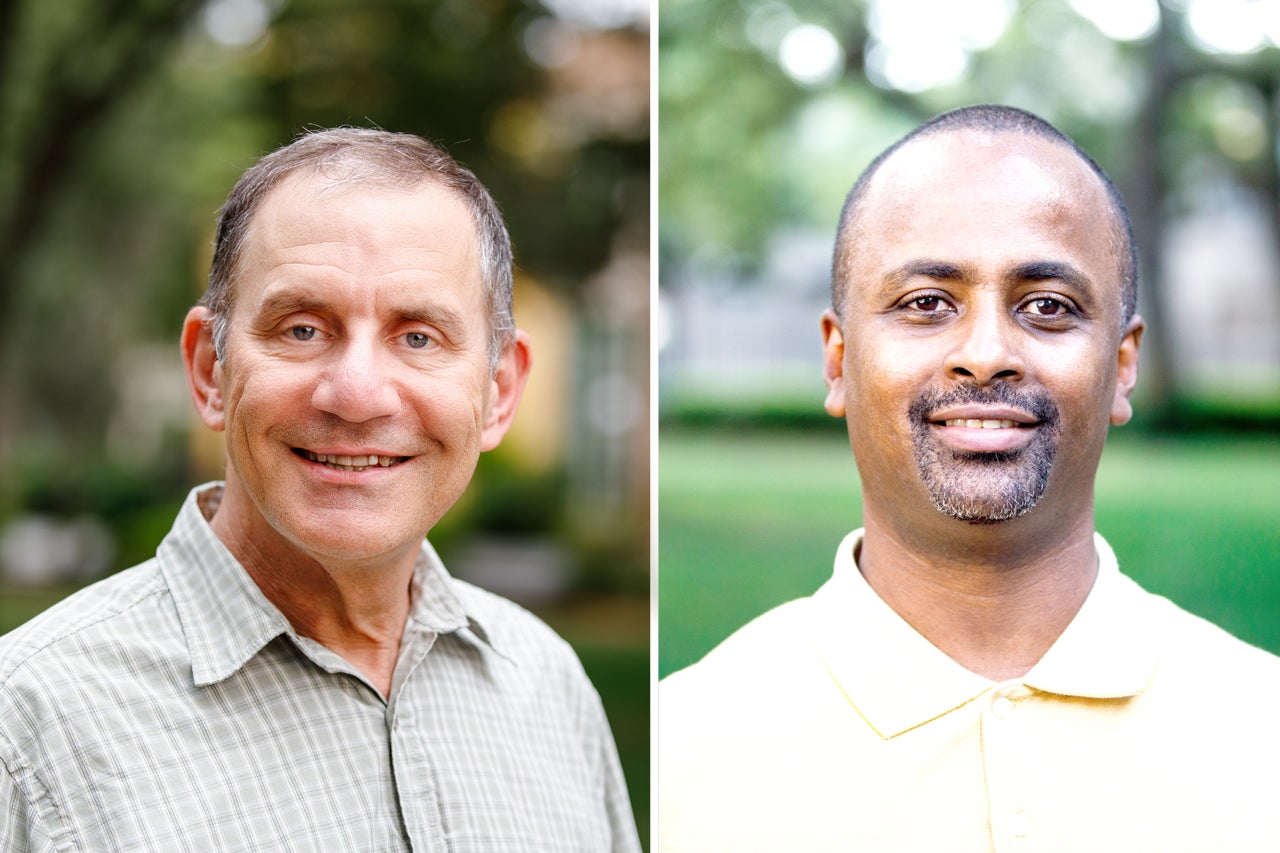Two College of Charleston professors have received Fulbright U.S. Scholar Program awards for the 2021–22 academic year. Professors Adem Ali and Richard Bodek will head to different parts of the globe in the international educational exchange program to learn and lecture in their respective fields.
Ali, an associate professor in the Department of Geology and Environmental Geosciences, will conduct research and teach in South Africa at the University of Witwatersrand and the University of Limpopo. Ali’s studies use current technology, including high-resolution satellites and drones, to assess water supplies from a resource and quality aspect, which can help further climate and environmental research.
Ali – who has previously collaborated with a team at Witwatersrand on similar projects, resulting in the publication of a 2020 research paper – says the Fulbright fellowship allows him to further interact with colleagues, thus “providing a platform to develop much stronger and broader international collaborations.”
It also allows him to interact with and engage international students.
“The pedagogical experience I will gain at an institution with a different cultural and environmental setting will certainly enrich my teaching and mentoring experience,” says Ali, who has previously brought College of Charleston students to South Africa to learn geospatial technology and its uses in the field of geology and hopes that some of his CofC students will be able to join him while he is teaching there next year, too. “I want to encourage students to be open to international travel because I think it gives them a new perspective and they can understand the world better. It opens up a new way of thinking and appreciation.”
Bodek, a professor in the Department of History, will travel to London to teach at the University of Roehampton, where he will teach historical methods, historical problems and war and memory in the 20th century. He is looking forward to “seeing how historians at a university in a very different system teach courses and bringing some of these ideas back to CofC.”
While he’s there, he will also continue his research on Elisabeth Kusian, a homicidal nurse in occupied Berlin in the late 1940s. In 1949, Kusian robbed, murdered, dismembered and dumped her victims into Berlin’s rubble in order to acquire the resources to get a typewriter to give as a Christmas present to her married lover, a police detective.
Though very mild mannered himself, Bodek has a keen interest in violent crime history in the post-WWII period and was researching cases in Hamburg and Berlin when he ran across multiple files on Kusian. He now plans to write a book on the murder-podcast–worthy life of Kusian.
“She’s just so interesting – drug use, she’s a nurse, she cuts bodies up,” says Bodek. “And it’s right when Berlin has been divided and is still in ruins. It’s like history runs through her.”
Bodek and Ali are both grateful and honored for the opportunities allowed to them by the Fulbright Program, which was created to increase mutual understanding between the people of the United States and the people of other countries.
Since its inception in 1946, the Fulbright Program has given over 400,000 passionate and accomplished students, scholars, teachers, artists and professionals of all backgrounds and fields the opportunity to study, teach and conduct research, exchange ideas and contribute to finding solutions to important international problems. Now the largest and most diverse international educational exchange program in the world, the Fulbright Program is funded primarily by an annual appropriation made by the U.S. Congress to the U.S. Department of State’s Bureau of Educational and Cultural Affairs.




